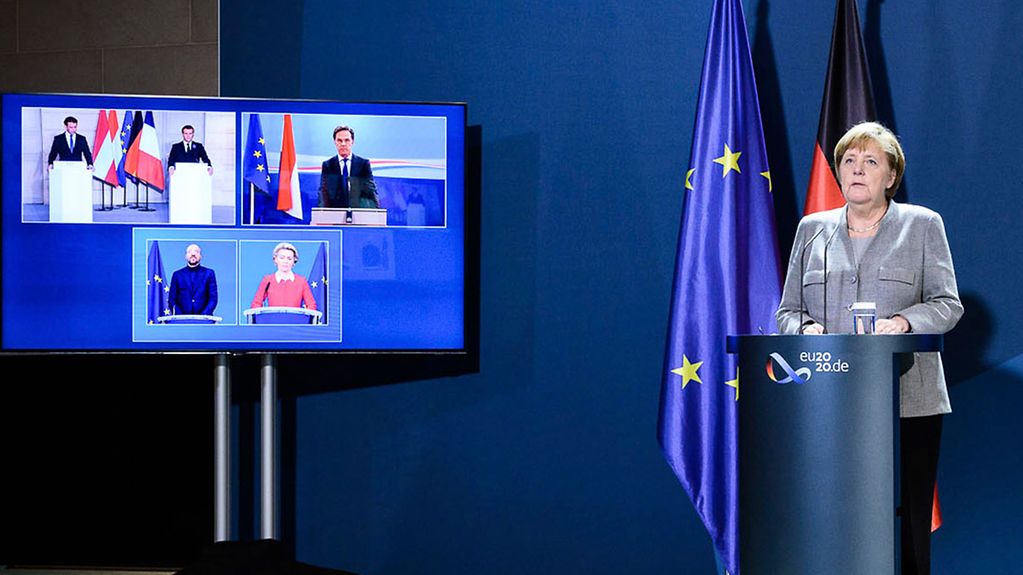Video conference on terrorism in Europe
The most recent attacks in Paris, Nice, Vienna and Dresden are "attacks on our free societies and our way of life" declared Chancellor Angela Merkel after a video conference with EU partners. She reported that they would be taking "an uncompromising stance to uphold the free and democratic order" in the fight against terrorism.
2 min reading time

Chancellor Angela Merkel has discussed the fight against terrorism with European partners.
Photo: Bundesregierung/Denzel
A video conference with European partners on Tuesday focused on a European response to recent terrorist attacks in European cities. Chancellor Angela Merkel consulted with French President Emmanuel Macron, Austrian Chancellor Sebastian Kurz and Mark Rutte, Prime Minister of the Netherlands. The President of the European Council, Charles Michel, and the President of the European Commission, Ursula von der Leyen, also attended.
"An uncompromising stance to uphold the free and democratic order"
Angela Merkel declared that they would be countering terrorism with "an uncompromising stance to uphold the free and democratic order" – both in directly affected states and at European level. The Chancellor stressed that the attacks are not a conflict between Islam and Christianity but "a reflection of the fact that democratic societies need to confront terrorism and anti-democratic behaviour, and that they have to do this with great candour and an uncompromising stance."
Accelerating European anti-terrorist initiatives
Important European actions to fight terrorism include the planned entry-exit system to monitor travel at the external borders of the Schengen Area. The Chancellor stated that it is "absolutely essential" that we know who is entering and leaving the Schengen Area. She also mentioned the European Travel Information and Authorisation System (ETIAS), which is to provide for visa-free travel within the Schengen Area. Neither system is yet operational, she reported, and urged that ways be found to accelerate progress.
Angela Merkel also stressed that before the end of Germany’s Presidency of the Council of the European Union, the planned "Regulation on preventing the dissemination of terrorist content online " is to be finalised. She expressed her hope that a compromise can be found that will make it possible to act both swiftly and constitutionally.
Dialogue with Islamic countries
In this discussion with EU partners, the Chancellor reported that Germany is seeking contact with Islamic organisations as part of anti-terrorism moves, and gave the example of the German Islam Conference. She pointed out that there is a "societal dimension involved" and not only a criminal or judicial dimension. She also advocated engaging in dialogue with Islamic countries about our common fight against terrorism.
Where do we go from here? On Friday 13 November, the EU Home Affairs Council will meet, chaired by Germany, which currently holds the Presidency of the Council of the European Union. This issue will also be on the agenda of the December meeting of the European Council.